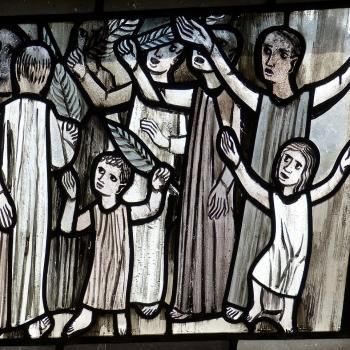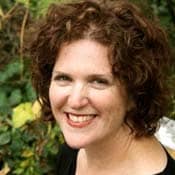 This past weekend at a dinner party, I was stopped on my way to the kitchen by a friend who is not particularly religious. He has been reading R. Crumb's graphic novel, The Book of Genesis Illustrated. My friend is completely taken with it and it has started a new fascination with the Hebrew Scriptures for him. He is surprised at how brilliant and shocking the stories are, and had the great idea that we should be telling more of the biblical story in graphic form.
This past weekend at a dinner party, I was stopped on my way to the kitchen by a friend who is not particularly religious. He has been reading R. Crumb's graphic novel, The Book of Genesis Illustrated. My friend is completely taken with it and it has started a new fascination with the Hebrew Scriptures for him. He is surprised at how brilliant and shocking the stories are, and had the great idea that we should be telling more of the biblical story in graphic form.
His response surprised me, not so much because of his new interest in the Bible, but because his assumptions about the Bible are similar to those that I had for most of my life. Where I grew up, the Bible was the untouchable answer handbook, the direct, inerrant, inspired Word of God. So, when I read it, it was like my brain went into a different mode. Instead of reading the stories for what they were, I was looking for deeper meaning and timeless normalized truths. During this time, I learned to love the poetry of scripture and experienced its power to transform one's perspective and gives direction to life. This was and is meaningful to me, and I am grateful for the way my soul was fed for many years.
By the time I entered seminary at 35, I didn't have the same love affair with scripture that I once had. What a 13-year-old girl found meaningful wasn't working for someone asking bigger questions about living in a world of injustice and the role of the church in a post-modern/post-colonial world.
In my first seminary class on the Old Testament, we were asked to read scripture and come up with questions. I came up with very few. I started to read and my brain would go numb with the familiar stories and the unquestioning manner in which I had always read it. Then I began to learn about historical criticism. I learned how the text had been messed with and that power and politics were all over the formation of our Holy Scriptures. At first, this was disconcerting. If the Bible wasn't perfect, what was there?
Driving home from school one day, I realized that I had been taught to read the Bible as a lawyer's brief—every word must be in place and the argument had to be hermetically sealed as the forever truth. One must use white gloves and a special kind of light when reading it (hence the brain fog). But what if, instead, scripture wasn't a sterile environment?
The first picture that came to mind was the city of Cairo. I imagined being in a nice hotel where everything was put together and familiar, and walking out of the door into chaos. Though I have never been to Cairo, I imagined merchants selling wares in the market haggling over prices, people arguing loudly, cars and bikes and pedestrians crowded together, smog filling the air. This week, given current events, we can add to the picture protests and oppressed people struggling for justice. What if scripture is more like the streets of Cairo than a five-star hotel? What if God's movement in the world happens in the chaos rather than some disconnected utopia?
This vision of scripture completely energized my biblical studies and my passion for the text. And when my friend began to describe his encounter with Genesis in graphic form, I recognized my own surprise when I discovered that this book is holy precisely because it is raw and political, not because it is perfect and pristine.
The contemporary preacher in America today has a difficult task because it seems almost everyone brings a foggy brain when it comes to scripture, but it is also an awesome opportunity to open the doors onto the streets of Cairo and proclaim that God is there in the midst of the chaos. We know God is present and active because our own chaotic scriptures hold the story of an ongoing conversation about the realities of life and the hope for global and personal transformation through a God with us in the midst of it with us. We are invited to enter the conversation, find grace and wholeness in the smog of our own stories, and give all that we are to seeing God's dream of shalom become reality in places like Tahrir Square. Now that'll preach.
2/9/2011 5:00:00 AM





